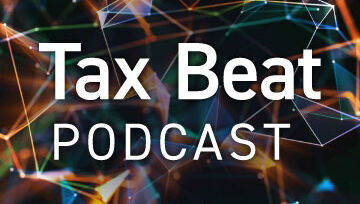Please read our more recent article for the most recent information on this topic.
Deductions for Meals and Entertainment Expenses
The ability of a business to take a deduction for meals and entertainment expenses has been limited for years, and the passage of the Tax Cuts and Jobs Act (“TCJA”) decreased deductions even further. With the TCJA disallowing any deduction for entertainment expenses, distinguishing meals and entertainment expenses became necessary. Business meals are currently 50% deductible while entertainment expenses are completely nondeductible.
However, the deduction limitation for meals and entertainment expenses is subject to certain exceptions, rendering some expenses deductible. Treasury and IRS recently finalized regulations addressing this deduction, including examples of meals and entertainment expenses not limited by the limitation rules.
Entertainment Expenses
Absent a statutory exception, the TCJA eliminated deductions for entertainment expenses directly related to business or associated with a business meeting. This includes dues or fees to any social, athletic, or sporting club or organization for the use of facilities for entertainment.
The final regulations continue to define entertainment as any activity that is of a type generally considered to constitute entertainment, amusement, or recreation. However, entertainment does not include the cost of food or beverages if those items are separately purchased or separately stated on a bill, invoice or receipt.
Whether a cost is entertainment or not is an objective test, which precludes an argument that costs should be characterized as public relations or advertising. Thus, the cost of funding a billboard at a sporting event would be an entertainment expense, subject to the disallowance rules, absent an exception. As noted below, an exception to the disallowance rule in this example would make the cost fully deductible. The cost of the billboard would be an expense for an item made available to the general public.
Meal Expenses
Business meal expenses are only deductible if they are not lavish or extravagant, incurred when the taxpayer or an employee of the taxpayer is present and incurred for the taxpayer or business associate. Thus, meals provided to spouses of either business associates or employees would not be deductible, although the meal expenses for the taxpayer, an employee of the taxpayer and business associates would be 50% deductible.
The final regulations make clear that meals are not considered an activity that constitutes entertainment, making meal expenses 50% deductible, unless an exception applies to make the amount fully deductible. Business meals include meals incurred during travel away from home, including meal per diem expenses. In addition, deductible meals include the cost of meals for a sole proprietor or business associate that are ordinary and necessary expenses paid or incurred in carrying on a trade or business. For this purpose, a business associate is a person with whom the taxpayer could reasonably expect to engage or deal with in the active conduct of the taxpayer’s trade or business, such as the taxpayer’s established or prospective customer, client, supplier, employee, agent, partner or professional adviser.
Business meals or snacks provided in a restaurant or at the business premises would only be 50% deductible. Similarly, food and beverage expenses provided on the business premises primarily for the convenience of the employer generally would be 50 percent deductible. In addition, meal expenses for employees or other attendees at a business meeting in a hotel would be only 50% deductible. This would also apply to business meals incurred by the taxpayer or employees of the taxpayer when traveling away from home for business, assuming the substantiation requirements required for meal expenses are met and amounts are not taxable as personal expenses to the employee.
Amounts not included in the employee’s income either because the amounts are reimbursed travel expenses, the meals are provided for the convenience of the employer or the benefit is a working condition fringe benefit, nontaxable to the employee, generally would all be 50% deductible. Because such amounts are not taxable to the employee, the exception for taxable meal amounts does not apply.
Exceptions to the Deduction Limitation Provisions
The TCJA included nine exceptions to the disallowance provisions, all of which apply to entertainment expenses, but only six of which apply to the 50% disallowance of meal costs.
If food and beverage or entertainment expense are includible in an employee’s wages or in the gross income of a non-employee, those amounts would be fully deductible, except in the case of specified individuals where the deduction is limited to the amount included in income. For this exception to apply, amounts must be included in wages for income tax withholding purposes and reported on a Form 1099 for non-employees. If some, but not all, of the value of a food or beverage expense is included in income, the amount so included would be deductible and not subject to the 50% limitation.
Where food and beverage expenses are reimbursed to an independent contractor, the final regulations, consistent with the proposed regulations, provide that the deduction limitations apply to the independent contractor unless, under a reimbursement or other expense allowance arrangement, the contractor accounts to its client or customer with substantiation that satisfies the regulatory substantiation requirements and the written contract between the parties expressly identifies the party subject to the limitations or states that the independent contractor is receiving amounts subject to the deduction limitation. Taxpayers incurring significant business meal reimbursement expenses with clients or customers should review contract arrangements to be sure that disallowed deductions apply to the party intended.
There is also an exception to the 50% rule for food and beverage expenses for company holiday parties, annual picnics and summer outings, making the amounts fully deductible. However, consistent with the proposed regulations, the final regulations provide that this exception does not apply to free food or beverages available to all employees in a pantry, break room, or copy room because the mere provision or availability of food or beverages is not a recreational, social, or similar activity, despite the fact that employees may incidentally socialize while they are in the break room. The final regulations define food or beverage expenses to mean the cost of food or beverages, including any delivery fees, tips, and sales tax. Indirect costs, such as delivery charges, plastic and paper products used in consuming the food and beverages and equipment within the breakroom that is used to store or produce the food or beverages and maintain sanitary conditions in the facility would not be part of food and beverage costs and would be fully deductible.
Meals made available to and primarily consumed by the general public would be fully deductible. The final regulations specify that this exception applies to meals consumed by employees, as long as the meals are primarily consumed by the general public. Primarily consumed is defined as more than 50% of actual or reasonably estimated consumption. For example, coffee and snacks available in an automobile showroom which the taxpayer reasonably estimates are consumed primarily by customers or potential customers would be fully deductible. Similarly, meal expenses at an overnight camp provided to attendees and counselors would be fully deductible as long as the majority of the meals are consumed by camp attendees. However, meals in a company cafeteria that is infrequently used by clients and suppliers would be limited to the 50% deduction if the general public is not estimated to consume more than 50% of the meals. Finally, meals sold to customers in a bona fide transaction for adequate and full consideration in money or money’s worth are fully deductible, even if a portion of those meals are consumed by employees. For this rule, payment through the provision of services is not considered money or money’s worth.
Conclusion
With these recent rule changes, it is important to review meals and entertainment expenses to be sure deduction limitations are properly applied and no exception to these limitations is available. Your Cherry Bekaert professional can help with this analysis.




